Trinity Monday 2013 - Fellows and Scholars
Trinity College Dublin was founded as a corporation consisting of the Provost, the Fellows and the Scholars. Scholars are elected annually in various subjects on the result of an examination held in Trinity term. Scholarship or research achievement of a high order is the primary qualification for Fellowship, coupled with evidence of the candidate's contribution to the academic life of the College and an effective record in teaching.
Traditionally, the election of new Fellows and Scholars is announced by the Provost on Trinity Monday (8th April 2013) at 10.00 a.m. from the steps of the Public Theatre. Two Honorary Fellows, Five Professorial Fellows, Ten New Fellows and Ninety Scholars were elected this morning.
Honorary Fellowship
IN ACCORDANCE WITH THE PROVISION IN SECTION 11 OF THE CHAPTER ON THE FELLOWS IN THE 2010 CONSOLIDATED STATUTES, THE FOLLOWING HAVE BEEN ELECTED TO HONORARY FELLOWSHIP:
Christopher Dobson (Professor)
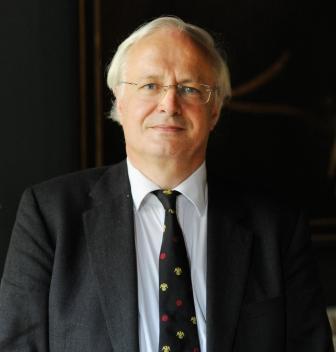
Professor Christopher Dobson is Master of St John's College, Cambridge. A chemist whose research focuses, in particular, on the processes of protein folding and misfolding, his studies have transformed our understanding of the origins of medical disorders such as Alzheimer's and Parkinson's diseases. His work provides, in addition, new insights into the evolutionary constraints upon the chemistry of life.
Professor Dobson was appointed John Humphrey Plummer Professor of Chemical and Structural Biology at the University of Cambridge in 2001 and Master of St John's College, Cambridge, in 2007. Trinity College Dublin and St John's College Cambridge maintain extremely close historical and collegial links - Professor Dobson's nomination as Honorary Fellow of the College is a mark of these continuing links. (Photo: Nic Marchant)
Patrick J O'Meara (Professor)
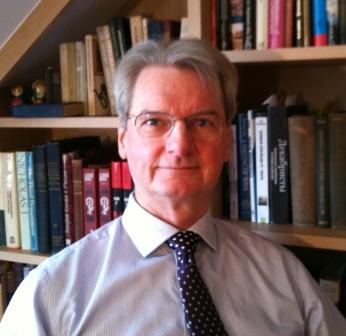
Recently retired and now living near Oxford, Patrick O'Meara is Emeritus Professor of Russian and former Master of Van Mildert College, Durham University, where he worked from 2004 to 2011. After studying at Keele and Oxford, he taught in the Russian Department in Trinity College for 30 years (1974 to 2004), was a Fellow for nineteen of them, and was made an Associate Professor in 1998. He served as the Senior Lecturer from 1991 to 1995. He has held visiting fellowships at the Kennan Institute, Washington D.C., the Australian National University, Canberra, and Fitzwilliam College, Cambridge.
He was appointed interpreter to the Taoiseach Charles Haughey for the visit to Ireland by President Gorbachev in April 1989 and to Albert Reynolds for the (unrealised) Official Visit by President Yeltsin in September 1994.
He is the author of two books and numerous articles on the political history of the reign of Tsar Alexander I with a primary focus on the Decembrists. He is currently preparing a book-length study of the Russian nobility in the age of Napoleon.
Professorial Fellowship
IN ACCORDANCE WITH THE PROVISION IN SECTION 7 OF THE CHAPTER ON THE FELLOWS IN THE 2010 CONSOLIDATED STATUTES, THE FOLLOWING HAVE BEEN ELECTED TO PROFESSORIAL FELLOWSHIP:
- Geoffrey Carson (Prof)
- Blanaid Clarke (Prof)
- Balz Kamber (Prof)
- Mark Little (Prof)
- Thomas Declan Walsh (Prof)
Richard Geoffrey Carson (Prof)
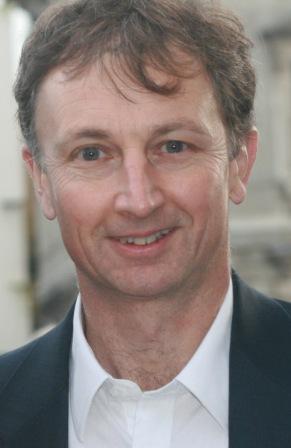
Richard Carson is Chair in Cognitive Neuroscience of Ageing in the School of Psychology and the Institute of Neuroscience at Trinity College.
He grew up near Belfast, graduated from the University of Bristol, and was subsequently awarded his Ph.D. by Simon Fraser University, British Columbia in 1993. While based at the University of Queensland; he was appointed an Australian Research Council Queen Elizabeth II Research Fellow (1998) and a National Health and Medical Research Council of Australia R.D. Wright Fellow (2002).
His research focuses upon human brain plasticity, with a particular focus upon changes that occur across the lifespan. It is geared towards the development of methods to maintain and restore cognitive and movement function in later life. Much of his current clinical and pre-clinical research has a specific emphasis upon the rehabilitation of stroke survivors, including the development and therapeutic evaluation of assistive devices.
Blanaid Clarke (Prof)
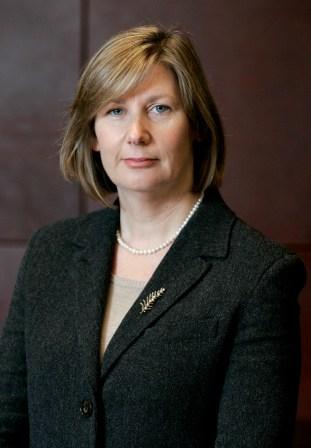
Blanaid Clarke holds the McCann FitzGerald Chair in Corporate Law at Trinity College Dublin. Prior to taking up this position, she was an Associate Professor in the Law School in University College Dublin.
Professor Clarke's research interests include company law, corporate governance, financial services law, securities law and takeover law and she has published extensively in these areas. She is one of the editors of Legal Studies and is on the editorial boards of the Journal of Business Law and Palmer's Company Law.
She was recently a member of the European Commission's Reflection Group on the Future of EU Company Law. She is a member of the European Model Company Act Group, the University of Oslo's Sustainable Companies project and the European Corporate Governance Institute. Professor Clarke works with the Irish Takeover Panel and is a member of the EU's European Securities and Markets Authority Takeover Bids Network. In October 2010, she was appointed to the board of the Irish Central Bank Commission.
Balz Kamber (Prof)
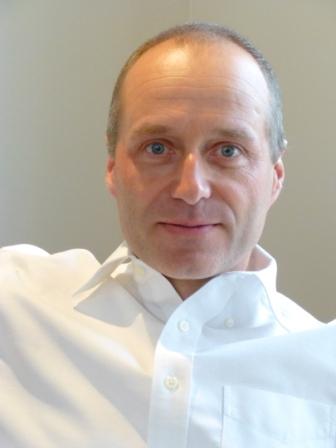
Balz Kamber grew up in Switzerland and graduated in Mineralogy from the University of Bern. Having conducted several seasons of fieldwork in Zimbabwe for his doctoral research, he obtained his Ph.D. in Isotope Geochemistry - also from the University of Bern. He then worked as a Postdoctoral Fellow in the U.K. (Cambridge and Oxford) before moving to the University of Queensland, where he was a Senior Research Fellow. Following that, he was appointed Tier 1 Canada Research Chair in Precambrian Geology at Laurentian University in Ontario, before joining the Geology Department at Trinity College in 2011.
Professor Kamber's main research interest is in reconstructing the dynamic nature of chemical cycles, which describe the interaction between the solid Earth, the hydrosphere and the biosphere. His group at Trinity College operates highly sensitive analytical equipment to tease out chemical fingerprints from ancient rocks relevant to the evolution of the atmosphere, the oceans, and life.
Mark Little (Prof)
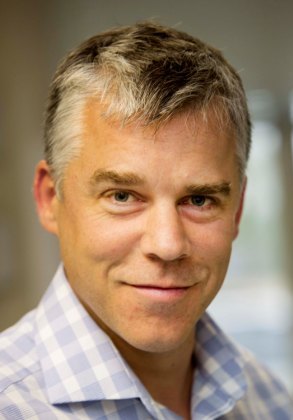
Professor Little is the Fottrell Chair of Nephrology, Trinity College, and a Consultant Nephrologist in the Adelaide Meath incorporating the National Children's Hospital (AMNCH) in Tallaght and Beaumont Hospital. After graduating Medicine in Trinity in 1993 and junior doctor training in the Adelaide, Meath, Mater and Beaumont hospitals, he completed his Nephrology training in North London in 2006. During this time, he obtained a Ph.D. from Imperial College London. His Post-doctoral time was spent at Hammersmith Hospital, University of Birmingham and University College London which consolidated a research programme focused on kidney inflammation and systemic vasculitis.
He was instrumental in setting up the Trinity Health Kidney Centre; an Academic Health Science unit linking the clinical units in AMNCH, Tallaght and St James's Hospitals with the Renal Inflammation Group laboratories in the Institute of Molecular Medicine and Trinity Biosciences Institute. His research interests include the pathogenesis of ANCA vasculitis and biomarker development in glomerulonephritis; the translational element of this is enabled by the Irish National Rare Kidney Registry and Biobank, which he established after returning to Ireland in 2012. This is linked to the pan-UK UKVAS vasculitis registry which he co-chairs. He was awarded the President of Ireland Young Researcher Award in 2012.
Thomas Declan Walsh (Prof)
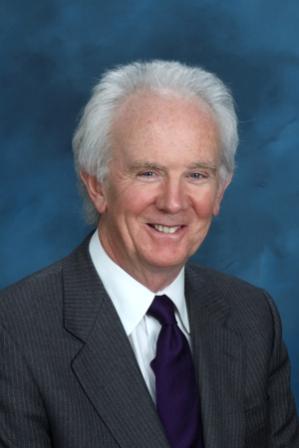
Professor Declan Walsh is a Medical Oncologist who joined Trinity College Dublin in 2012 as Professor of Palliative Medicine; a joint appointment between Trinity College and University College Dublin.
He was the Founding Director of the ground-breaking Harry R. Horvitz Center for Palliative Medicine at the Cleveland Clinic - a model for hundreds of others internationally. He retired from the Cleveland Clinic in 2012 when he joined Trinity.
Professor Walsh is the Senior Editor on a major textbook and web resource entitled Palliative Medicine. Research Fellows in his unit have been awarded ten “Young Investigator” awards. Other honours have included a Visiting Fellowship at Oxford University, the National Leadership Award from the American Academy of Palliative Medicine, and the John Mendelsohn Award from M.D. Anderson Cancer Center. He is a Fellow of the Royal Colleges of Physicians of Edinburgh and London, and the American College of Physicians.
Fellowship
IN ACCORDANCE WITH THE PROVISION IN SECTION 7 OF THE CHAPTER ON THE FELLOWS IN THE 2010 CONSOLIDATED STATUTES,THE FOLLOWING HAVE BEEN ELECTED TO FELLOWSHIP:
- Robert Baker (Dr)
- Padraig Carmody (Dr)
- Graham Cross (Dr)
- Carsten Ehrhardt (Dr)
- Sergey Frolov (Dr)
- Laurence Gill (Dr)
- Carol Newman (Dr)
- Sara Pavia (Dr)
- Michael Peardon (Dr)
- Ian Sanders (Dr)
Robert Baker (Dr)
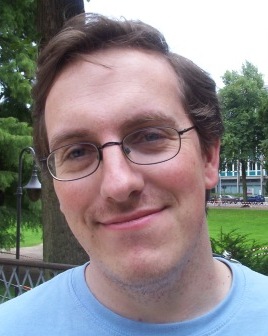
Bob Baker is currently an Assistant Professor in Inorganic and Materials Chemistry.
Dr Baker studied Chemistry at Warwick University in Britain and completed his Ph.D. at Cardiff University on the synthesis of phosphorus macrocycles in 2001. He worked as a postdoctoral fellow at Cardiff University (2001-2005). In 2005, he obtained an Alexander von Humboldt Scholarship working at TU Munich and TU Braunschweig. In 2007, he took up his first academic post at Nottingham Trent University (U.K.). Dr Baker joined the School of Chemistry, Trinity College Dublin, in January 2009. His research interests focus on the co-ordination and organometallic chemistry of the actinides, particularly thorium and uranium, for application to both fundamental and applied research.
Padraig Carmody (Dr)
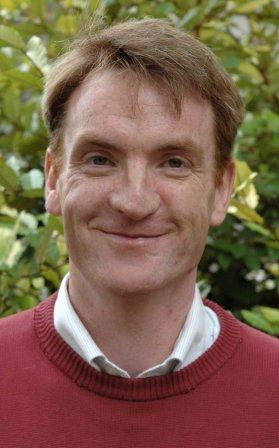
Padraig Carmody undertook his undergraduate and masters work at Trinity College Dublin; followed by a Ph.D. from the University of Minnesota, USA. After graduation, he remained in the USA and taught at the University of Vermont. He is currently Associate Professor in Geography and co-directs the TCD-UCD Masters in Development Practice.
Dr Carmody's research centres on the political economy of globalisation in Africa. He has published six books, including The New Scramble for Africa (2011) and The Rise of the BRICS in Africa (2013), in addition to articles in leading journals such as World Development. His research has been funded by the United States National Science Foundation, Irish Research Council, Irish Aid and National Geographic, amongst others. Dr Carmody's current research examines the impacts of mobile phone and other new information technology adoption in Africa. He sits on the board of Political Geography and African Geographical Review and is editor-in-chief of Geoforum.
Graham Cross (Dr)
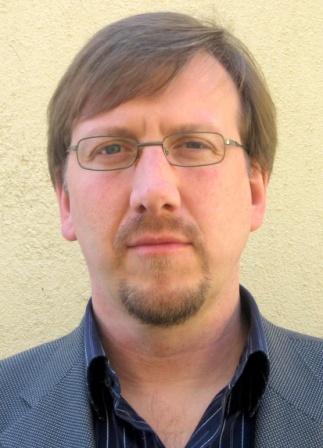
Graham Cross received his PhD degree in condensed matter physics from McGill University in Montreal, Canada in 2000. From 1999 to 2001 he was FCAR postdoctoral fellow at IBM Research in Zurich, Switzerland. After a brief stay at the University of Zurich, he joined the SFI Nanoscience Laboratory in Trinity College Dublin in 2002. Since 2008, Dr Cross has led a research group investigating the nanoscale mechanics of soft matter including polymers, colloids, gels and biomaterials.
Research interests include deformation behaviour of materials at the nano-scale, the production of nanodevices by mechanical forming, contact and transport at single asperities and structured interfaces and point probe methods and instrumentation including nanoindentation and atomic force and field ion microscopy.
Carsten Ehrhardt (Dr)
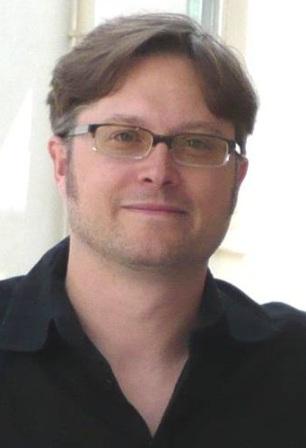
Carsten Ehrhardt is Associate Professor of Pharmaceutics and Pharmaceutical Technology in the School of Pharmacy and Pharmaceutical Sciences. He studied Pharmacy at the Universities of Frankfurt and Hamburg, and he received his Ph.D. in Biopharmaceutics from Saarland University.
Dr Ehrhardt took up a lectureship in Biopharmaceutics at Saarland University in 2003, before moving to Trinity College Dublin in August 2004. He served as Director of Research in the Trinity School of Pharmacy and Pharmaceutical Sciences from 2008-2012 and is Visiting Professor at the University of Southern California and the Universite Claude Bernard Lyon. Dr Ehrhardt is the recipient of honours and awards from the German Pharmaceutical Society, American Physiological Society (Respiratory Chapter) and the Galenus Foundation.
His research studies transport mechanisms of xenobiotics and endogenous compounds at the respiratory epithelial barrier and also included the development of advanced drug delivery systems for pulmonary administration. Dr Ehrhardt has edited one book and authored over 60 peer-reviewed research articles and reviews.
Sergey Frolov (Dr)
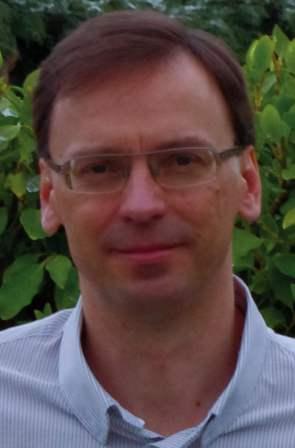
Sergey Frolov joined the School of Mathematics, Trinity College Dublin, in 2006 and is currently Senior Lecturer in Mathematics.
He obtained his M.Sc. degree from the Physics Department of Moscow State University in 1987. His Ph.D. degree was awarded by the Moscow branch of Steklov Mathematical Institute in 1990, where he now holds an honorary position of Associate Member.
Before joining Trinity College, Dr Frolov held research positions in Russia, France, USA and Germany. His main research interest lies in the area of theoretical high energy physics with emphasis on such a fundamental question as the relation between quantum gravity described by string theory and elementary particle physics described by quantum field theory. He obtained important results, of international impact, in this field and the March/April 2005 issue of ScienceWatch recognized his research in 2003-2004 as the “hottest research” in physics.
Laurence Gill (Dr)
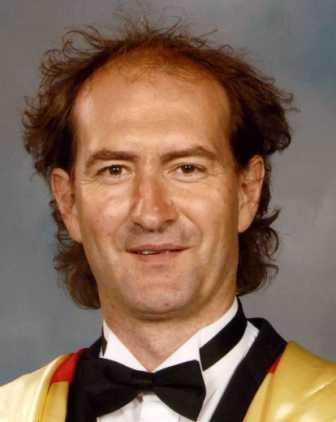
Laurence Gill is a Lecturer in Environmental Engineering in the Department of Civil Engineering (School of Engineering), Trinity College. Laurence studied Civil Engineering at Lancaster University, obtaining his B.Eng. in 1990, and obtained an M.Sc. in Environmental Engineering from the University of Newcastle-upon-Tyne in 1993.
Prior to moving to Trinity in 1999 to take up a lectureship, Dr Gill spent six years working in the UK water industry on the design of large-scale water and wastewater treatment plants, as well as in the research and development of new treatment processes. He gained his Ph.D. from Trinity in 2010.
Dr Gill's research interests involve studying the fate and transport of both air and water-borne pollutants in the natural and built environment, as well as the development of passive treatment processes. Much of this work involves extensive field studies to gather data, which is then used to develop mathematical models in order to gain further insight into the processes.
Carol Newman (Dr)
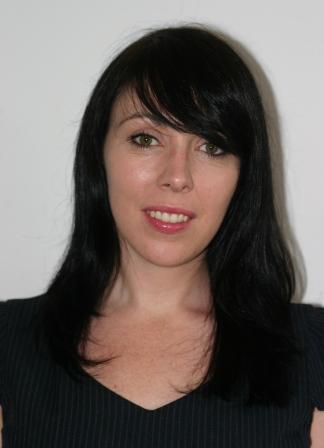
Carol Newman is an Assistant Professor at the Department of Economics, School of Social Sciences and Philosophy, Trinity College. She completed her B.A. (Mod) at Trinity in 1998 and her Ph.D. in 2001. She joined the staff of the Department of Economics in 2002. She was a visiting scholar at the University of Chicago in 2007 and at the University of Copenhagen in 2006.
Her main research focus is in the field of development economics; in particular the micro-foundations of development covering both household and enterprise behaviour. She is currently involved in a number of major projects in South East Asia and Africa including Vietnam, Cambodia, Uganda and Nigeria. In addition to her work in development economics she has also published widely in the field of agricultural economics and on the Irish economy.
Dr Newman is Champion for the International Development Research Theme in Trinity College and is Leader of the Development Challenge research cluster of the International Integration Research Theme.
Sara Pavia (Dr)
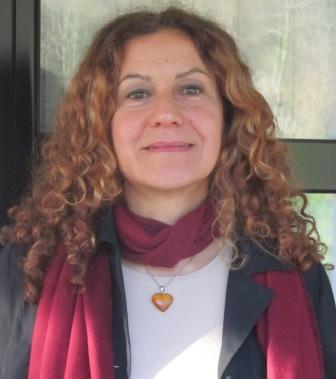
Sara Pavia is a Professor of Civil Engineering at Trinity College. Her research areas are masonry mortars, pozzolans, sustainable composites, energy efficient construction and lime-mortar masonry. She has published seven books and approximately a hundred papers on her specialist subjects and has worked in industry for building/architectural companies and Government bodies.
Dr Pavia designed and is the Director of the Postgraduate Diploma in Building Repair and Conservation. The course has received excellent reviews and is officially acknowledged by the Royal Institute of Architects of Ireland and Engineers Ireland. She is involved with teaching and co-ordination of seven other courses in College and has acted as an external examiner for 20 international institutions.
Dr Pavia joined Trinity in 1994 as Post-doctoral researcher. She has also taught at University College Dublin (School of Architecture) (1996-2002); Universidad Politecnica de Madrid since 2010; University of Zaragoza 2000-2005; the Construction Industry Federation 1999-2010; the Dublin Civic Trust 1998-2004 and Chicago College of Art, 1998-2001.
Michael Peardon (Dr)
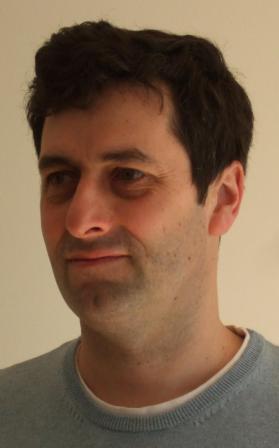
Michael Peardon is an Associate Professor in the School of Mathematics. He completed his undergraduate studies in Cambridge University and has a Ph.D. from the University of Edinburgh.
Prior to joining Trinity College Dublin in 2000, he was a postdoctoral researcher in the University of Kentucky, Forschungszentrum Juelich, Germany and the University of California, San Diego.
His research in theoretical physics aims to learn more about the substructure of nuclear matter by making predictions directly from quantum chromodynamics (QCD), the theory of the strong interactions that bind quarks and gluons inextricably inside the nucleons. Understanding the confinement of quarks remains one of the biggest unsolved puzzles of high-energy physics. To study the theory, Dr Peardon exploits large-scale high-performance computers to carry out Monte Carlo simulations using a technique called lattice QCD.
Ian Sanders (Dr)
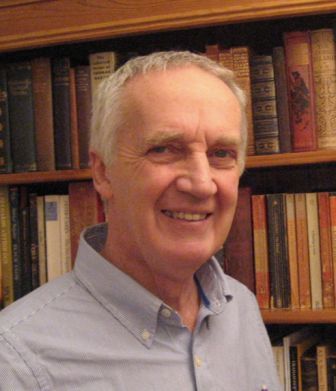
Ian Sanders grew up in England and obtained his primary degree and doctorate at St John's College, Cambridge. He settled in Dublin after being appointed in 1971 to a Lectureship in Geology at Trinity College Dublin.
His teaching and research lie in the fields of mineralogy and petrology. For two decades he investigated enigmatic Scottish and Irish rocks which originated deep in the Earth's interior. By the early 1990s, his interest had switched to meteorites and their implications for planet formation. His recently published ideas run counter to conventional thinking, and have prompted heated debate on the events that took place in the terrestrial planet region during the Solar System's first five million years.
Scholarship
THE FOLLOWING HAVE BEEN ELECTED TO SCHOLARSHIP 2013:
| Department | Name |
|
|---|---|---|
| Ancient & Mediaeval History & Culture | Jamie Ross Chandler | |
| Children's & General Nursing (B.Sc.) | Niamh Dunne | |
| Clinical Speech & Language Studies | Orla Gilheaney |
|
| Deaf Studies | Aine Nally | |
| Dental Science | Brian Dunne Wan Ying Lam Abdulrahman Mohamed |
|
| Drama & Theatre Studies | Lydia Fischer Dooley | |
| Economic & Social Studies | Colm Farrell |
|
| Engineering (Integrated) | Michael Broderick |
|
| English Studies | William Brady Robert Brown Cillian Fahy Eleanor Louise Hoole Rowe |
|
| History | David Briscoe | |
| History & Political Science | Cormac Shine | |
| Information Systems (Hons) (BSc) | Gerard Keogh | |
| Irish Studies | Amy Beaumont Chappelhow | |
| Law | Nicole Mary Burke Conor Casey Gary Martin Hansell Daniel Price |
|
| Law & Business | Caoimhe Stafford | |
| Law & French | Alison Kelly | |
| Law & Political Science | Clare Elizabeth Kelly Aoife Katherine O'Reilly James Rooney |
|
| Management Science & Information Systems Studies | Laura O'Malley | |
| Mathematics | Patrick Condon Ewan Dalby |
|
| Medicine (5-year) | Adam Dyer |
|
| Music | Ian James Sewell | |
| Natural Sciences | Andrew Cooper Kevin Daly Lua Koenig O'Carroll Aine Niamh O'Toole Michael Tierney |
|
| Nursing (B.Sc.) | Ben Adams Gary Joseph Fennessy Ifesola Ifelaja Sinead Impey Brigid O'Reilly Caitlyn Elisha Paclibar Elizabeth Treacy |
|
| Occupational Therapy | Orla Buckley | |
| Pharmacy | Mena Eskander Susanne Farrell Aisling Kerr Jordan Nally Kate O'Donnell |
|
| Philosophy & Political Science | Henry John Charles Longden | |
| Philosophy, Political Science, Economics & Sociology | Cataline De La Sota Bouyssou William Dunne |
|
| Physics & Chemistry of Advanced Materials | Arann McMahon | |
| Physiotherapy | Rebecca Kummert Kate Marie Macnamara Colin McGrath David O'Regan Sarah Purcell Conor Walsh |
|
| Political Science & Geography | Alexander Robert David Conway Eamonn Fahey |
|
| Psychology | Hugh Drumm | |
| Sociology & Social Policy | Ryan Alberto O'Giobuin | |
| Theoretical Physics | Frank Reginald Norton Chambers James Fagan Liam Hallinan Eamonn O'Shea |
|
| Two Subject Moderatorship | English Literature & History | Emma Boylan |
| Philosophy & Sociology | Ciannait Khan | |
| Economics & Philosophy | Conor McGlynn | |
| Economics & Psychology | Feidhlim McGowan | |
| Classical Civilisation & History | Cathal Joseph McManus | |
| Drama Studies & English Literature | Aine Josephine Mary Tyrell | |
| Geography & Sociology | Samuel Basil Mayo Verbi | |
| World Religions & Theology | Michael Daniel Currivan | |